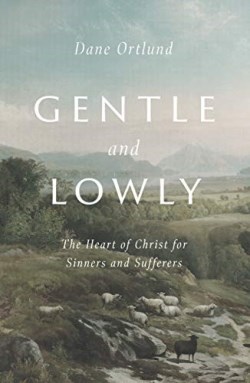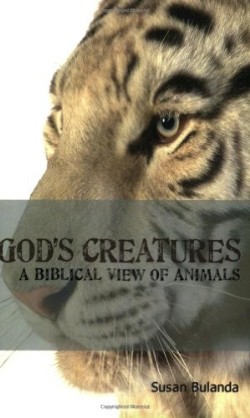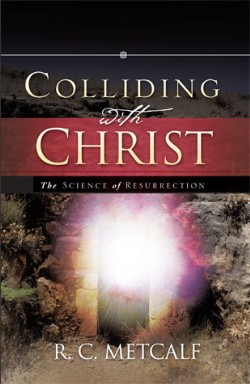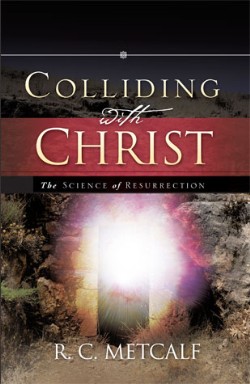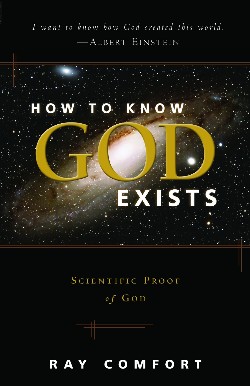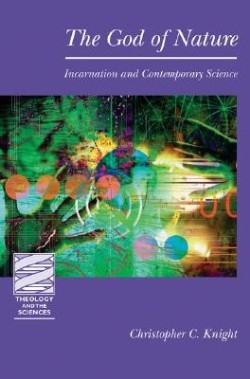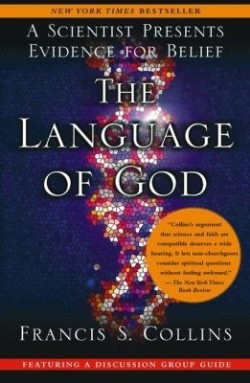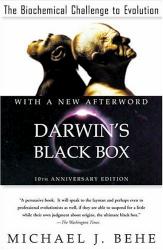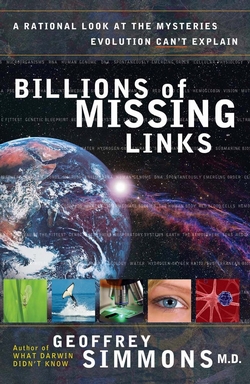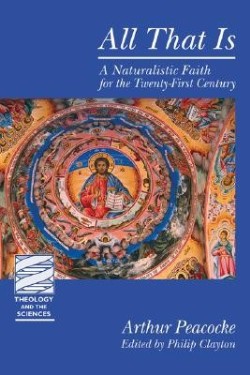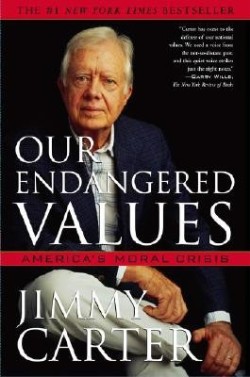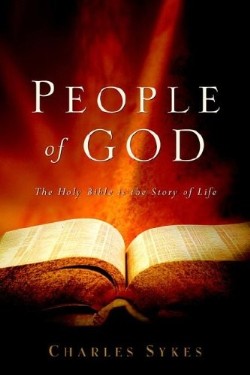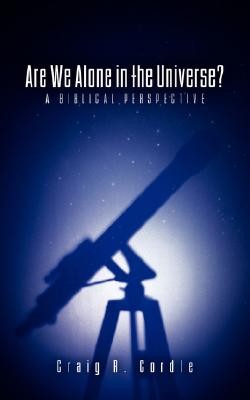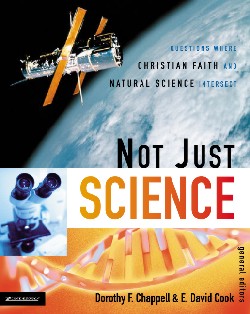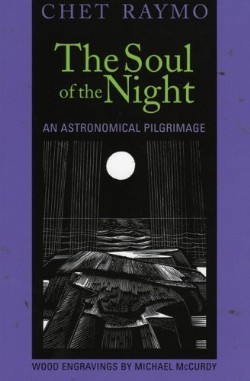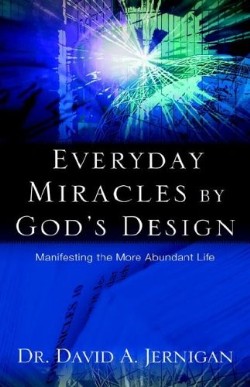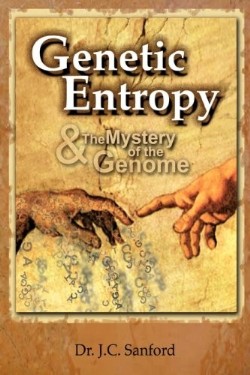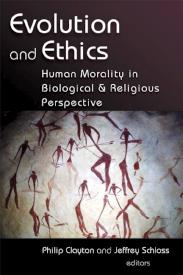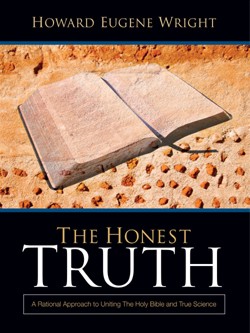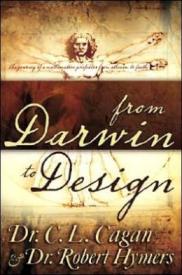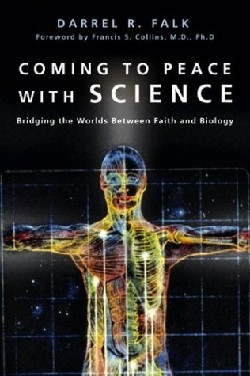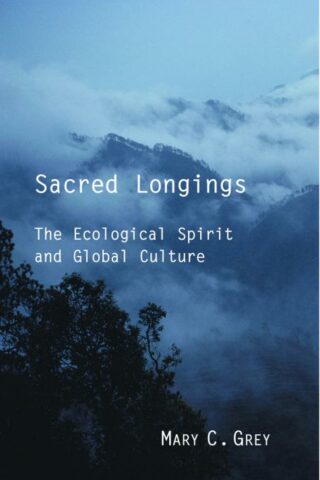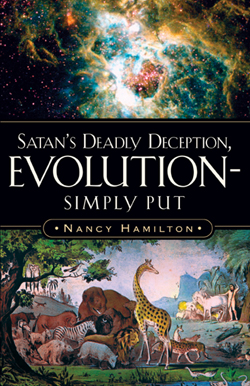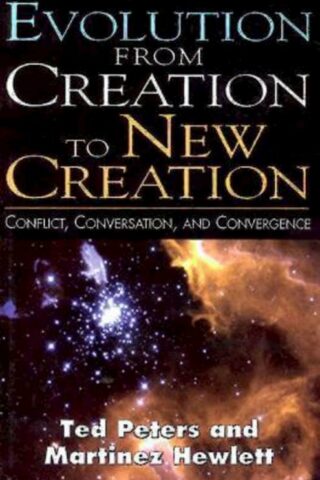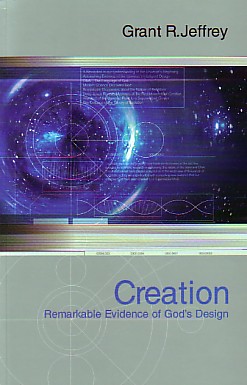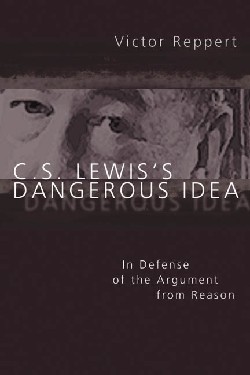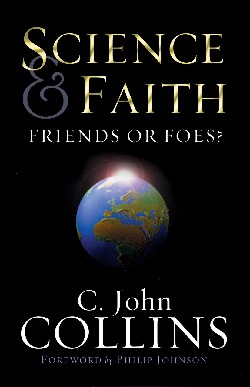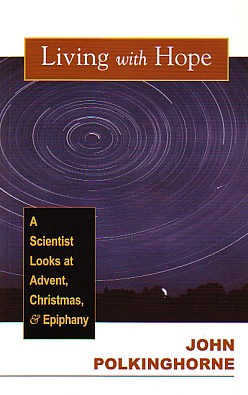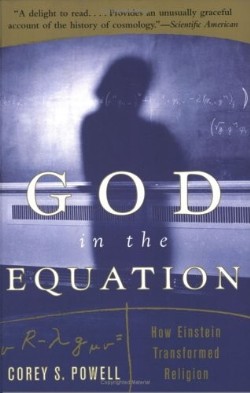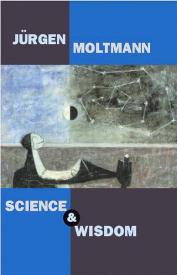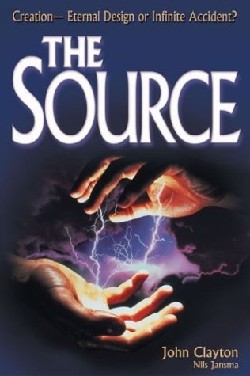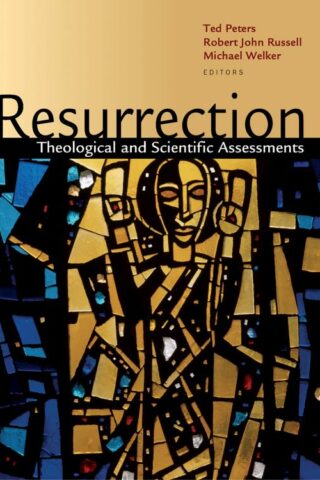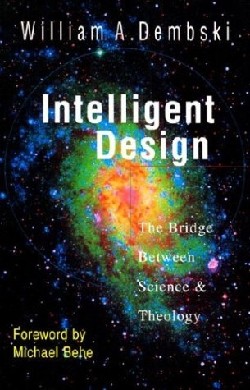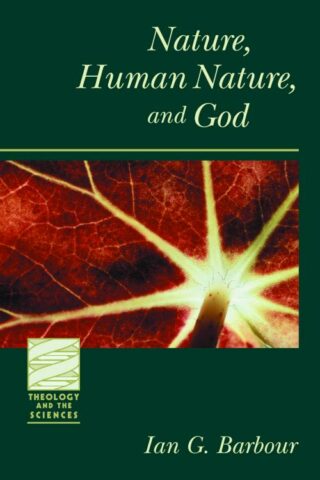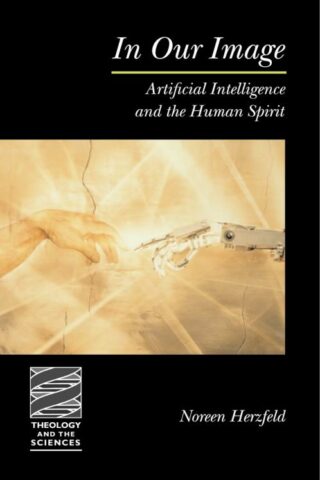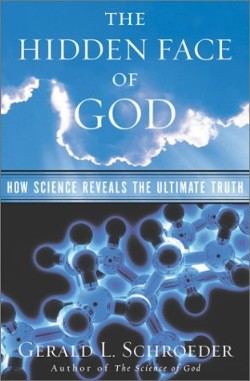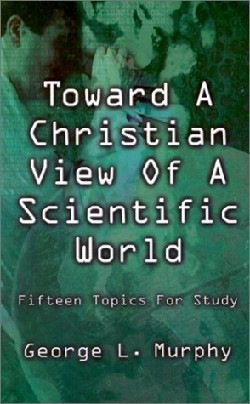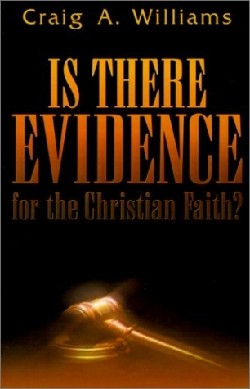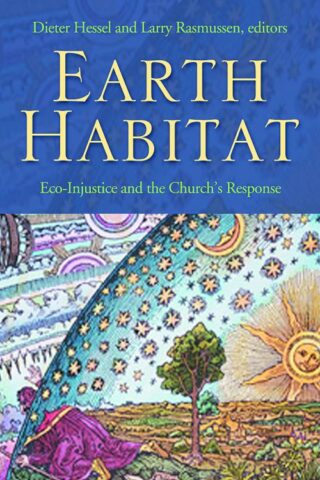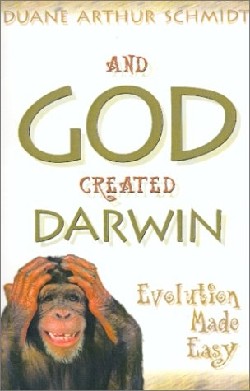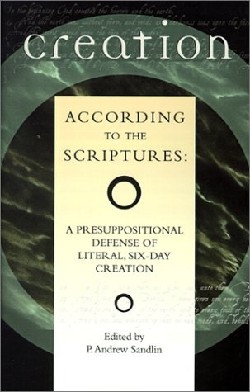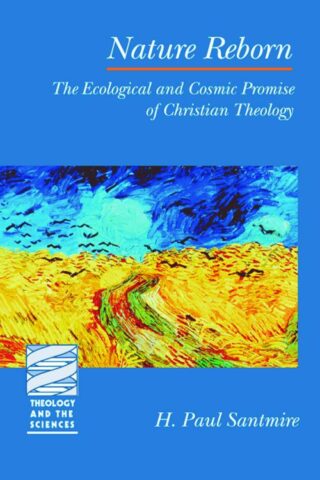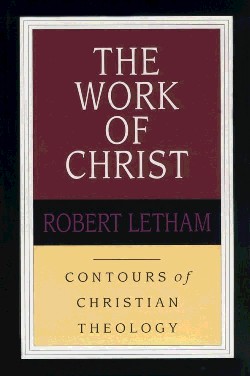Science and Faith
Showing 101–150 of 177 resultsSorted by latest
-
Beginning Of All Things
$27.99In an age when faith and science seem constantly to clash, can theologians and scientists come to a meeting of minds? Yes, maintains the intrepid Hans KA 1/4ng, as he brilliantly argues here that religion and science are not mutually exclusive but complementary. Focusing on beginnings – beginnings of time, of the world, of man, of human will – KA 1/4ng deals with an array of scientific precepts and teachings. From a unified field theory to quantum physics to the Big Bang to the theory of relativity – even superstring and chaos theories – he examines all of the theories regarding the beginning of the univererse and life (of all kinds) in that universe. KA 1/4ng seeks to reconcile theology with the latest scientific insights, holding that “a confrontational model for the relationship between science and theology is out of date, whether put forward by fundamentalist believers and theologians or by rationalistic scientists and philosophers.” While accepting evolution as scientists generally describe it, he still maintains a role for God in founding the laws of nature by which life evolved and in facilitating the adventure of creation. Exhibiting little patience for scientists who do not see beyond the limits of their discipline or for believers who try to tell experts how things must have been, KA 1/4ng challenges readers to think more deeply about the beginnings in order to facilitate a new beginning in dialogue and understanding.
Add to cartin stock within 3-5 days of online purchase
-
Whats So Special About Me
$15.61“What’s so special about me?” reveals the breathtaking wonders of the human body to young and old in a fresh and readable way. Focusing on the complexities inherent within each individual, Dr. Bradley Kuhn uses this as a signpost to lead the reader to the inescapable conclusion of an ultimate designer. In so doing, this book will give you an uplifting encounter with the amazing miracle of life. Educational and easily understood, “What’s so special about me?” addresses the key issues that many young people deal with today – self esteem, significance and purpose.
Add to cartin stock within 3-5 days of online purchase
-
Gods Creatures : A Biblical View Of Animals
$11.4915 Chapters
Additional Info
Will animals be in heaven? Is it right to kill and eat animals? How does God use animals to accomplish his purposes? Are animals somehow aware of their Creator? Here are answers to these questions and more. Susan Bulanda draws on years of experience as an animal behaviorist and a Bible student to present a discussion of God’s purposes and dealings with animals. For committed Christians who love animals, or animal lovers who are curious to know how the Christian scriptures address animal issues.Add to cartin stock within 3-5 days of online purchase
-
Colliding With Christ
$34.36Did Jesus Christ really rise from the dead? In The God Delusion (p. 59), Richard Dawkins claims that, “The methods we should use to settle the matter, in the unlikely event that relevant evidence ever became available, would be purely and entirely scientific methods.” R. C. Metcalf agrees that science offers one of the strongest lines of relevant evidence, but contends that a comprehensive case should draw from many sources of human knowledge. In Colliding with Christ, Dr. Metcalf adds to the textual and historical evidence in favor of the physical resurrection of Jesus by presenting a thought-provoking new model that explains the events of the first Easter scientifically. If you’ve ever struggled with thoughts that science has refuted the Christian faith… think again! The evidence is still mounting… The jury is deadlocked… …but Jesus Christ is alive and well!
Add to cartin stock within 3-5 days of online purchase
-
Colliding With Christ
$21.86Did Jesus Christ really rise from the dead? In The God Delusion (p. 59), Richard Dawkins claims that, “The methods we should use to settle the matter, in the unlikely event that relevant evidence ever became available, would be purely and entirely scientific methods.” R. C. Metcalf agrees that science offers one of the strongest lines of relevant evidence, but contends that a comprehensive case should draw from many sources of human knowledge. In Colliding with Christ, Dr. Metcalf adds to the textual and historical evidence in favor of the physical resurrection of Jesus by presenting a thought-provoking new model that explains the events of the first Easter scientifically. If you’ve ever struggled with thoughts that science has refuted the Christian faith… think again! The evidence is still mounting… The jury is deadlocked… …but Jesus Christ is alive and well!
Add to cartin stock within 3-5 days of online purchase
-
How To Know God Exists
$15.99With the recent wave of books on atheism becoming New York Times best-sellers, the God debate is heating up. Because of the implications, it’s the most significant qustions of all time: Is there a God, or isn’t there? In this compelling book, Ray Comfort argues the case
with simple logic and common sense. If there is a God, surely He has made His presence known so that anyone, young or old, scholar or schoolchild, can find Him. By applying basic logic to three clear evidences for the existence of God, Comfort will help you to:
*Examine the case for evolution and see what top scientists are really saying about the theory
*Explore the facts that led the world’s most notorious atheist to acknowledge a Creator
*Investigate the evidence to discover who God is through 100% proof you can know God exists.Add to cartin stock within 3-5 days of online purchase
-
God Of Nature
$40.00Although Christians have professed the God of Israel, they have often assumed a naturalistic theism that harks back to the Greeks. Doing so, says Christopher Knight, has masked the explanatory potential of a basic Christian affirmation: the incarnation.
Knight here forges a third way of thinking about divine engagement with the world, beyond deism and theism. He sees God’s intimate involvement with creation and history as implied in the reality of the incarnation and essentially confirming divine purpose in a kind of sacramental character to all events as they unfold in the world. On this basis, he brings fresh insight to the questions of providence, miracles, personal prayer, the virgin birth, and the ascension of Jesus.
Knight’s work promises not to displace science, nor to plead for special exceptions on special occasions, but to see God as always active in the very warp and woof of the universe and its laws.
Add to cartin stock within 3-5 days of online purchase
-
Language Of God
$18.00The head of the Human Genome Project and a former atheist, Collins makes a strong case for BioLogos—God-directed evolution—in comparison to atheistic evolution, Intelligent Design, and creationism. He offers an awe-inspiring tour of the complexities of biology, genetics, and DNA—and reveals a richly satisfying, harmonious melding of scientific and spiritual worldviews.
Add to cartin stock within 3-5 days of online purchase
-
Darwins Black Box
$20.00The groundbreaking, “seminal work” (“Time) on intelligent design that dares to ask, was Darwin wrong?
In 1996, “Darwin’s Black Box helped to launch the intelligent design movement: the argument that nature exhibits evidence of design, beyond Darwinian randomness. It sparked a national debate on evolution, which continues to intensify across the country. From one end of the spectrum to the other, “Darwin’s Black Box has established itself as the key intelligent design text — the one argument that must be addressed in order to determine whether Darwinian evolution is sufficient to explain life as we know it.
In a major new Afterword for this edition, Behe explains that the complexity discovered by microbiologists has dramatically increased since the book was first published. That complexity is a continuing challenge to Darwinism, and evolutionists have had no success at explaining it. “Darwin’s Black Box is more important today than ever.
Add to cartin stock within 3-5 days of online purchase
-
Billions Of Missing Links
$22.48Harvest House Print On Demand Title
Dr. Geoffrey Simmons focuses on the millions of structures and systems on the Earth that came about all at once, entire…with no preceding links, no subsequent links, no “sideways” links.
To illustrate, he surveys examples like…
*the hummingbird and its circulatory system
*insects and insect-eating plants
*the role of the thousands of species of viruses
*chemical signals and the sensory apparatus that detects them
*the self-regulating capacity of the Earth’s ocean/air/soil systemIt’s clear: Nature containsonly leaps, not links. Only the intelligence and purpose of an all-powerful Designer can explain the intricate creatures, connections, and “coincidences” everywhere.
Excellent for students and parents, especially homeschoolers, and for educators who want to present the “full picture.”
Add to cartin stock within 3-5 days of online purchase
-
All That Is
$38.33During the last year of his life, Arthur Peacocke raced against time to formulate a final comprehensive overview of his “emergentist – naturalist – panentheist” perspective. A group of ten specialists in science-and-religion then composed commentaries and critiques of Peacocke’s new “Essay in Interpretation.” In the last weeks and months of his life, Peacocke drew together a final set of reflections on and replies to their chapters. Peacocke’s “Nunc Dimittis,” his final theological reflections in the days before his death, completes this volume.
Peacocke’s brief sketch of how God and nature and humanity interrelate will prove a nascent classic in the field and a touchstone for further reflection. Led by editor Philip Clayton, respondents include: Nancey Murphy, Ann Pederson, Philip Hefner, John Polkinghorne, Karl E. Peters, Donald M. Braxton, Robert John Russell, Keith Ward, Christopher C. Knight, and Willem B. Drees.
Add to cartin stock within 3-5 days of online purchase
-
Our Endangered Values
$16.00President Jimmy Carter offers a passionate defense of separation of church and state. He warns that fundamentalists are deliberately blurring the lines between politics and religion.
As a believing Christian, Carter takes on issues that are under fierce debate — women’s rights, terrorism, homosexuality, civil liberties, abortion, the death penalty, science and religion, environmental degradation, nuclear arsenals, preemptive war, and America’s global image.
Add to cartin stock within 3-5 days of online purchase
-
People Of God
$19.36Do you believe man’s theory of how life evolved; or do you believe in creation by God? Explore with me the reasons to believe God and the Bible!
Add to cartin stock within 3-5 days of online purchase
-
Are We Alone In The Universe
$18.73Our society is infatuated with the prospect that life exists on other planets. Three out of four Americans believe in the existence of extraterrestrial life. Scientific experts say it is just a matter of time before the existence of alien life is a proven fact. Biblical evidence reveals that we are alone in the universe! In the search for extraterrestrial life, many have discarded the Bible as a source of insight on this question. Are We Alone in The Universe? A Biblical Perspective compares scientific information about the universe and the search for extraterrestrial life with what the Bible says concerning the possible existence of intelligent life on other planets. This book will reveal God’s purpose for the immensity of the universe, the worth God places on our seemly insignificant lives, and bring about a greater awareness that there is no bigness or smallness in the eyes of God.
Add to cartin stock within 3-5 days of online purchase
-
Not Just Science
$35.70This book questions where Christian faith and natural science intersect. What should liberal arts students studying at Christian colleges and universities be asking themselves as they natural science? This book enables students to think critically about how the Christian worldview influences our perceptions in the area of natural science. It acquaints students with foundational questions important to the practice of natural science, as well as God’s mandate to care for His creations.
Add to cartin stock within 3-5 days of online purchase
-
Soul Of The Night
$15.95Probing the depths of science and faith, scientist Chet Raymo investigates the mysteries of human spirituality and meaning contained in astronomy. Ranging through the stars and the myths humans have told about them for millennia, Raymo delves into “a pilgrimage in quest of the soul of the night.”
Chet Raymo’s elegant essays link the mysterious phenomena of the night sky with the human mind and spirit, as he ranges through the realms of mythology, literature, religion, history, and anthropology. Originally published two decades ago, The Soul of the Night is a classic work that is a must for those interested in the relationship between science and faith
Add to cartin stock within 3-5 days of online purchase
-
Everyday Miracles By Gods Design
$18.73Don’t you wish your body and life came with an Operator’s Manual? In his groundbreaking book, Everyday Miracles by God’s Design, Dr. David Jernigan presents an amazing interweaving of the latest science and the universal truths from God’s Word. This book is a bold step towards the Operator’s Manual you always wanted! Dr. Jernigan’s work transcends and bridges the gaps between science and faith so that everyone can discover the power of their Maker through a truly miraculous life. Learn how to attain and access the ultimate power in the universe. This book will take you on a journey with a worthy destination, one that will last your entire life and beyond.
Add to cartin stock within 3-5 days of online purchase
-
Genetic Entropy And The Mystery Of The Genome
$31.25Dr. John Sanford, a retired Cornell Professor, shows in Genetic Entropy and the Mystery of the Genome that the “Primary Axiom” is false. The Primary Axiom is the foundational evolutionary premise – that life is merely the result of mutations and natural selection. In addition to showing compelling theoretical evidence that whole genomes can not evolve upward, Dr. Sanford presents strong evidence that higher genomes must in fact degenerate over time. This book strongly refutes the Darwinian concept that man is just the result of a random and pointless natural process
Add to cartin stock within 3-5 days of online purchase
-
Evolution And Ethics
$38.99Christians frequently resist evolutionary theory, believing it to be incompatible with the core values of their tradition. But what exactly are the tensions between evolution and religious faith in the area of human morality? Evolution and Ethics examines the burning questions of human morality from the standpoint of Christian thought and contemporary biology, asking where the two perspectives diverge and where they may complement one another.
Representing a significant dialogue between world-class scientists, philosophers, and theologians, this volume explores the central features of biological and religious accounts of human morality, introducing the leading theories and locating the key points of contention. Central to these discussions are the questions of whether human actions are ever genuinely selfless, whether there is something in the moral life that transcends biological function, and whether one can sensibly speak of an overall purpose to the course of evolution.
Certain to engage scholars, students, and general readers alike, Evolution and Ethics offers a balanced, levelheaded, constructive approach to an often divisive debate.
Add to cartin stock within 3-5 days of online purchase
-
Honest Truth : A Rational Approach To Uniting The Holy Bible And True Scien
$24.98When I realized the confusion in the church and the secular world concerning the common ground between the Bible and the sciences, I decided to “light a light rather than curse the darkness.” It was necessary to have a format that would do justice to the Bible and the sciences. After a number of years of research, I decided to approach this subject as a thorough coverage of the Bible and the sciences. Thus, this book starts by developing a sound mind for greater service for God and others. It is followed with the honest truth found in the Bible from Genesis to Revelation. Then there is a comparison of Good Science with the illusions of modern “science,” falsely so called. The fourth part of this book is the reenactment of the marriage of Holy Bible and True Science to bring glory and honor to God. This is followed by a number of appendixes and a bibliography to reinforce the argument found in it.
Add to cartin stock within 3-5 days of online purchase
-
From Darwin To Design
$17.00From Darwin To Design shows how Dr. Cagan, a staunch atheist, gradually began realizing that the laws governing the universe are too precise to point to anything but Intelligent Design.
Dr. Cagan presents surprising information that will convince you of the awesomeness of God. He makes Himself evident down to, and including, the minutest part of science and math. You will see the creative universe as never before! And find:
*Answers to the debate between creationism and evolution
*What to tell your children when they ask about science in school
*How nature and science both point to God
*Answers for those who think religion is outdatedHere is what to tell people when they ask about the beginning of the world. Cagan reveals his findings, which will introduce you to the Master Creator as he me Him – through the precise beauty of science.
Add to cartin stock within 3-5 days of online purchase
-
Coming To Peace With Science
$24.99Foreword By Francis S. Collins
Preface
Acknowledgments
1. Science And Religion: Trying To Live In Two Worlds At Once
2. The Creation And Fall: Exploring The Meaning Of Scripture
3. Putting Creation Into A Time Frame
4. The Fossil Record
5. Beyond The Fossil Record: Looking At The Geographical Distribution Of Life’s Diversity
6. Tracing Lineage By Tracking Genes
7. Coming To Peace With Biology
IndexAdditional Info
Is a thoroughly Christian and biblically informed doctrine of creation compatible with widely held conclusions of modern science, especially biology? For Darrel R. Falk, this is not just an abstract question but one with which he has personally wrestled. A professor of biology, Falk brings together his biblically based understanding of creation and the most current research in biology. The result of his efforts to acknowledge the validity of science and the authority of Scripture is a new paradigm for relating the claims of science to the truths of Christianity. Written with the undergraduate student in mind, this book nonetheless will help anyone who is looking for a place to stand in the creation-evolution debate, fearful that they’ll have to choose between intellectual integrity and the faith of the church. Calling for charitable discussions within the church, Falk shows how an original and ongoing interaction of God with creation is fully reconcilable with the kinds of development identified by current biological science.Add to cartin stock within 3-5 days of online purchase
-
Sacred Longings : The Ecological Spirit And Global Culture
$33.33What do we really want? Internationally noted theologian Mary Grey believes we have gotten out of touch with our deepest desires. Trapped by the seductions of the marketplace, addicted to more and more, our culture has acquiesced in global capitalism’s most problematic characteristics, including widespread poverty and global maldistribution of resources. Grey’s hopeful book argues that there is a deeper language of desire that plumbs to what humanity really wants. Emergent in story and myth and symbol, these sacred longings can be seen in the simple yet profound elements–within and beyond Christianity–or water, light, and sacred space. Getting back in touch with our sacred longings entails a spiritual quest–a kind of ecomystical renewal–that can transform our desire, enliven our communities, simplify our lifestyles, and ultimately rekindle our global prospects.
Add to cartin stock within 3-5 days of online purchase
-
Satans Deadly Deception Evolution Simply Put
$18.73Creation is God’s Absolute Truth! Choruses of hallelujahs rang throughout the vastness as Almighty God said, “Let there be,” and THERE WAS! Through first-person narration, you will witness Creation through the eyes of an angel. You will hear about the wonderful Creation of man at the hands of God, listen to Eve reminisce about life in the Garden of Eden, and shudder at the revelation of sin and shame due to man’s disobedience to God. Evolution is Satan’s Deadly Deception! Gain an insight into how and why Satan’s manipulation of evolution is influencing man and man’s way of thinking concerning God and Christianity.We’ll look at evolution and see how the Bible refutes every concept of evolution’s insidious and destructive theories. By searching the Scriptures, we will plug the gap in the Gap Theory, mute the bang in the Big Bang Theory, and dispel Darwin’s monkey to man theory!
Add to cartin stock within 3-5 days of online purchase
-
In Whom We Live And Move And Have Our Being
$37.50SKU (ISBN): 9780802809780ISBN10: 0802809782Editor: Philip Clayton | Editor: Arthur PeacockeBinding: Trade PaperPublished: February 2004Publisher: Lightning Source – Print On Demand Print On Demand Product
Add to cartin stock within 3-5 days of online purchase
-
What Darwin Didnt Know
$23.73What Darwin Didn’t Know puts Darwin’s ‘findings’ in perspective of what we now know thanks to microbiology. Doctor Simmons brings a medical doctor’s view of the human body to give proofs against natuaral selection. End of chapter ‘Bottom Line Points’ give a concise breakdown of the major issues covered in each chapter. Thoroughly engaging and written for those with no specific knowledge of biology, this book gives an eternal perspective to the systems and functions each of us have and use every second of every day.
Add to cartin stock within 3-5 days of online purchase
-
Evolution From Creation To New Creation
$25.99Today’s seminary students often come to their graduate work with little or no knowledge of science or theology; yet they most certainly have opinions about evolution, as will their future congregants. How can such students plunge into the whirlpool of controversy that surrounds the heated debates between science and theology? How can they negotiate the often ideological waters of Darwinism, NeoDarwinism, Social Darwinism, Sociobiology, Youth Earth Creationism, Intelligent Design, and Theistic Evolution? Here the authors answer these questions, offer a bridge for understanding the inner coherence and passion of each stream of thought, and lead to a constructive proposal: evolution in natural history is part of God’s method for carrying the creation from its origin to its consummation in the eschatological new creation.
Add to cartin stock within 3-5 days of online purchase
-
Square Wheel : Do You Believe In Square Wheels
$18.73The Square Wheel deals with many beliefs and teachings in society that are simply untrue. It firstly shows that evolution is false and brings to light the sheer obviousness of creation. If you don’t believe in God, read this book and challenge yourself. How do you know it’s not true unless you read it? Whether you believe in God or not, this book is a vital strengthening tool that underlines the plainness of God in creation. It also helps unclutter and clear the mind about many issues. Living in modern society, we are exposed to so much information that the really important truth gets choked and can become totally mixed up and ignored. This book delves deeply into the truth in the world and its history and clearly shows God and Christ are indeed real.
Add to cartin stock within 3-5 days of online purchase
-
Creation : Remarkable Evidence Of Gods Design
$19.00Content Includes:
*Deep Space Reveals Mysteries Of The First Moments Of Creation
*Wonders Of The Universe Point To A Supernatural Creator
*A Revolution In Our Understanding Of The Universe’s Beginning
*Astonishing Evidence Of The Universe’s Intelligent Design
*Remarkable Discoveries About The Nature Of The Atom
*The Collapse Of The Theory Of Evolution
*DNA- The Language Of God
*Modern Science Discovers GodAdditional Info
This book explores the powerful new evidence discovered in the last few decades by scientific research in astronomy, the nature of the atom and DNA. These discoveries have caused a revolution in the world view of thousands of scientists as they were confronted with compelling new evidence that our universe must have been created by a Supernatural Mind. Grant Jeffrey’s latest book, Creation, will challenge readers with fascinating new information that confirms the Bible’s claim that “In the beginning God created the heavens and the earth”.Add to cartin stock within 3-5 days of online purchase
-
C S Lewiss Dangerous Idea
$20.99SKU (ISBN): 9780830827329ISBN10: 0830827323Victor ReppertBinding: Trade PaperPublished: October 2003Publisher: InterVarsity Press Print On Demand Product
Add to cartin stock within 3-5 days of online purchase
-
Science And Faith
$32.00Many believers worry that science undermines the Christian faith. Instead of fearing scientific discovery, Jack Collins believes that Christians should delight in the natural world and study it. God’s truth will stand against and challenge and will enrich the very scientific studies that we fear. Collins first defines faith and science, shows their relation, and explains what claims each has concerning truth. Then he applies the biblical teaching on creation to the topics of “conflict” between faith and science, including the age of the earth, evolution, and miracles. He considers what it means to live in a created world. This book is for anyone looking for a Christian engagement with science without technical jargon.
Add to cartin stock within 3-5 days of online purchase
-
Living With Hope
$23.00Advent is a time for deepening encounter with reality, including the ultimate reality made manifest in human form at Christmas and Epiphany. This thought-provoking book illuminates biblical thinking with striking new insights from the author’s twin disciplines of theology and science at the cutting edge of physics.
Though daily readings for Advent, Christmas, and Epiphany Polkinghorne explores such themes as the end of the world, individual destiny, unseen realities, heaven, hell, and suffering; this is not a book that hides behind platitudes or easy solutions, yet the author offers profound insight into his deep reflections on the nature, meaning, and purpose of creation.
Suitable for individual study, as a guide to prayer during Advent and beyond, or as the basis of small group discussion, Living With Hope offers a unique and inspiring pathway into the coming of Christ in history, in our lives, and in what we shall be.
Add to cartin stock within 3-5 days of online purchase
-
God In The Equation
$18.99He wanted to know where our world comes from and where it was going.
He wanted to understand how the remote stillness of the heavens relates to the erratic, ever-changing events here on earth.
Above all, he wanted to know if the answers to these questions would bring him closer to a higher authority.
So Einstein put God in the Equation
“Everyone who is seriously involved in the pursuit of science,” Albert Einstein once said, “becomes convinced that a spirit is manifest in the laws of the universe — a spirit vastly superior to that of man.” This mysterious component, which Einstein called a “cosmological constant,” would eventually work its way into his world-shattering theory of relativity. In this way, explains acclaimed science writer Corey S. Powell, Einstein was creating a formula for a new kind of “sci/religion,” one in which God was a factor, denoted by the Greek letter Lambda, and one that would pave the way for an entirely new gnostic era in the history of human spirituality.
Add to cartin stock within 3-5 days of online purchase
-
Science And The Study Of God
$25.50Religion and science today are often seen as enemies battling for human hearts and minds. In this new book Alan Padgett takes a postmodern turn, arguing that they can and should work together collegially, developing a worldview that is at once spiritually meaningful and scientifically sound.
Pursuing a perspective that he calls the “mutuality model,” Padgett highlights the contributions that both religion and science make to a full understanding of the world and our place in it. He argues convincingly that the natural sciences and theology, even though they have their own domain as disciplines, can rationally influence each other without giving up their distinctive methods.
The book explores the nature of informal reason and worldviews, the character of theology as a spiritual and academic discipline, and the question of what counts as natural science. Along the way, Padgett discusses such topics as thermodynamics, time, resurrection, and the historical Jesus to illustrate his powerful mutuality model.
Add to cartin stock within 3-5 days of online purchase
-
Science And Wisdom
$38.33Weighing both the pluses and minuses of modern science, Moltmann specifically assesses contemporary cosmology. He ponders the creation as an open system, the self-emptying of God in the history of the universe, problems of time and eternity, ideas of God and space, as well as the last things.
Add to cartin stock within 3-5 days of online purchase
-
Source : Creation Eternal Design Or Infinite Accident
$19.95(When placing your order, please mention that this is a Lightining Source book.)
A number of years ago, John Clayton, a second-generation atheist and respected scientist and teacher, set out to disprove the Bible from a scientific point of view. Instead, his six-year study brought him to a profound faith in the God of the Bible.
Now, in this highly informative and easy to understand book, John Clayton and Nils Jansma – a geotechnical engineer and geologist – present convincing evidence that the Bible and the facts of science agree. As the public moves away from a belief in God as Creator of our heaven and earth, it becomes imperative that all believers be well informed on this vital subject. This book will become a resource you will use again and again.Add to cartin stock within 3-5 days of online purchase
-
Resurrection : Theological And Scientific Assessments
$38.99In this volume first-rate scientists and theologians from both sides of the Atlantic explore the Christian concept of bodily resurrection in light of the views of contemporary science.
Whether it be the Easter resurrection of Jesus or the promised new life of individual believers, the authors argue that resurrection must be conceived as “embodied” and that our bodies cannot exist apart from their worldly environment. Yet nothing in today’s scientific disciplines supports the possibility of either bodily resurrection or the new creation of the universe at large. Cosmology, for example, only forecasts an end to the universe. If persons and the cosmos are to rise up anew in the eschaton, such an event will have to be a willful act of God. Thus, while modern science can offer aid in constructing models for picturing what “resurrection of the body” could mean, the warrant for this belief must come from distinctly theological resources such as divine revelation. Christian faith ultimately gains its strength not from modern science but from God’s promises.
Bridging such disciplines as physics, biology, neuroscience, philosophy, biblical studies, and theology, Resurrection offers fascinating reading to anyone interested in this vital Christian belief or in the intersection of faith and scientific thought.
Add to cartin stock within 3-5 days of online purchase
-
Intelligent Design : The Bridge Between Science And Theology
$32.99“Mathematician-philosopher Dembski is author of the acclaimed Design Inference. The present book is a more accessible statement of the argument for nonspecialists. Of particular interest are Dembski’s responses to the objections raised to his arguments. An important book,”—First Things
Add to cartin stock within 3-5 days of online purchase
-
Dancing With The Sacred
$58.25SKU (ISBN): 9781563383939ISBN10: 1563383934Karl PetersBinding: Trade PaperPublished: August 2002Publisher: Trinity Press International Print On Demand Product
Add to cartin stock within 3-5 days of online purchase
-
Nature Human Nature And God
$30.00In his latest work, the dean of religion and science tackles some of the thorniest issues posed by contemporary thought. Thoroughly conversant with current developments, Barbour offers astute analyses of the shape and import of evolutionary theory, indeterminacy, neuroscience, information theory, and artificial intelligence. He also addresses deeper philosophical issues and the idea of nature itself. Then with characteristic clarity and verve, Barbour advances to the interconnected religious questions at the core of contemporary debate: Are humans free? Does religion itself evolve? Are we immortal? Is God omnipotent? How does God act in nature? Barbour’s creative and constructive work offers hope that newer religious insights and imperatives occasioned by deep interaction with science can address the environmental and global challenges posed by science’s relentless advance.
Add to cartin stock within 3-5 days of online purchase
-
In Our Image
$40.00In Our Image is the first extensive theological engagement with the field of Artificial Intelligence (AI). Herzfeld probes this new field, which seeks to model human intelligence in computers, for its theological depth. She argues that “At the root of the fascination our current culture has with creating an image of ourselves in an intelligent computer lies a continuing problematic of defining … what it means to be truly human.” She shows how AI continues the classic Christian quest for defining the image of God in humans. Offering a smart, accessible history and typology of research in AI, Herzfeld shows how its rival schools parallel competing options in the theological anthropologies of Niebuhr, von Rad, and Barth. She probes our interest in AI and argues that a relational anthropology informs the best research and the many depictions of AI in science fiction and film. Herzfeld’s exciting work further develops this relational model, in which she finds a needed corrective to the individualistic and narcissistic tendencies of much recent spirituality and the seeds of a human/computer ethic.
Add to cartin stock within 3-5 days of online purchase
-
Hidden Face Of God
$18.99Gerald Schroeder takes a bold step forward, to show that science, properly understood, provides positive reasons for faith and God.
Add to cartin stock within 3-5 days of online purchase
-
Toward A Christian View Of A Scientific World
$18.68Modern science and science-based technology have changed traditional understandings of the world in profound ways. A pastor who is also a trained scientist draws on his diverse background to help readers put today’s scientific knowledge in the context of Christian faith. Murphy sees the world described by today’s science as the creation of God revealed in Jesus Christ, and technology and modern medicine as ways to carry out God’s purpose for the world. This book is a useful tool for introducing readers to the crucial conversations and interactions now occurring between the fields of science, theology, technology, and ethics. It’s a clear and accessible text that’s appropriate for adult classes and lay groups of all levels.
Add to cartin stock within 3-5 days of online purchase
-
Is There Evidence For The Christian Faith
$19.98SKU (ISBN): 9781931232807ISBN10: 1931232806Craig WilliamsBinding: Trade PaperPublished: November 2001Publisher: Xulon Press Print On Demand Product
Add to cartin stock within 3-5 days of online purchase
-
Earth Habitat : Eco Injustice And The Churchs Response
$35.00This single volume gathers theologians from around the world to address three pressing questions: How can Christianity and Christian churches rethink themselves and their roles in light of the endangered earth? What “earth-honoring” elements does justice- oriented Christianity have to contribute to the common good? And how can communities and churches respond creatively and constructively on a local level to these vast global forces? This volume captures the chief themes and presentations from the October 1998 conference on social justice, ecology, and church entitled “Ecumenical Earth” and held at Union Theological Seminary. Among the 18 contributors to this trailblazing conference are Rasmussen and Hessel, James Cone, Kusumita Pedersen, Brigitte Kahl, Ibrahim M. Abu-Rabi, Steven Rockefeller, Havid Hallman, Ernst Conradie, Peggy Shepard, and Troy Messenger.
Add to cartin stock within 3-5 days of online purchase
-
And God Created Darwin
$20.61To many people, Charles Darwin isGod. Because of Darwin, many believe mankind was once primate, and that all living creatures evolved from a single organism. Darwin’s theory of evolution is accepted as the truth, not as a mere premise or hypothesis. Duane Schmidt believes otherwise. Schmidt believes Darwin-not God- is dead. In clear and simple terms, he gives a compelling expose on Darwin’s theory of evolution, a theory he calls one of history’s most subversive scientific lies. Duane Schmidt has a knack for explaining important things without losing the common touch. Many people will benefit from his personable yet learned way of explaining what is wrong with Darwinian evolution. -Phillip Johnson, author, Darwin On Trial and The Wedge of Truth Dr. Schmidt has the extraordinary ability to expose the faulty logic of evolution in concise and clear English…His ability to see the inconsistencies is uncanny. -Robert Kohl, Professor of Geology, South Dakota State University Succinct,logical, and systematic…an eye-opener for those who think evolutional theory can felicitously coexist with true science and belief in the God who purposed it. -Julie Hamel, home-school parent, Cedarburg, Wisconsin I’ve read hundreds of books on both sides…Dr. Schmidt does a good job simplifying the complex. I highly recommend this book! -Charles Snodgrass, Electrical Engineer, North American Rockwell
Add to cartin stock within 3-5 days of online purchase
-
Creation According To The Scriptures
$19.95Subtitled A Presuppositional Defense of Literal Six-Day Creation, this symposium by thirteen authors is a direct frontal assault on all latitudinarian and otherwise waffling views of Biblical Creation. It expldes the “Framework Hypothesis,” so dear to the hearts of many respectability-hungry Calvinists, and it throws down the gauntlet to all who believe they can maintain a consistent view of Biblical infallibility while abandoning literal, six-day creation. It is a must reading for all who are observing closely the gradual defection of many allegedly conservative churches and denominations, or who simply want a greater grasp of an orthodox, God-honoring view of the Bible.
Add to cartin stock within 3-5 days of online purchase
-
Nature Reborn : The Ecological And Cosmic Promise Of Christian Theology
$28.33Santmire’s much-acclaimed Travail of Nature documented the unfortunate legacy of many Christian theological notions in the use, abuse and destruction of the natural world, along with its positive aspects. His new work returns to the fray, this time to reclaim classic, mostly premodern Christian themes and reenvision them in light of the global environmental and cultural crisis. This revisionist work – “To revise the classical Christian story in order to identify and to celebrate its ecological and cosmic promise”- mines Christian cosmology, Christology, Creation, Eucharist, so that the Christian “story” can be then rediscovered (history), reshaped (theology), reexperienced (spirituality), and reenacted (ritual).
Add to cartin stock within 3-5 days of online purchase
-
Work Of Christ
$35.99Introducing the insightful new book in InterVarsity’s Contours of Christian Theology series! In this latest volume, Letham broadens your understanding of Christ’s many roles as he discusses the Lord’s 3-fold office as prophet, priest, and king. Within this framework, he explores Christ and the Word of God, the nature and theories of the atonement, and more.
Add to cartin stock within 3-5 days of online purchase
-
Metaphysics : Constructing A World View
$21.99William Hasker addresses some of the most fundamental issues in philosophy, focusing on the meaning of a Christian worldview. The book’s primary purpose is to serve as one of several texts in an introductory philosophy course, but it will also be of use to the interested reader outside any formal course framework. Hasker addresses “Freedom and Necessity,” “Minds and Bodies,” “The World,” and “God and the World.”
Add to cartin stock within 3-5 days of online purchase



